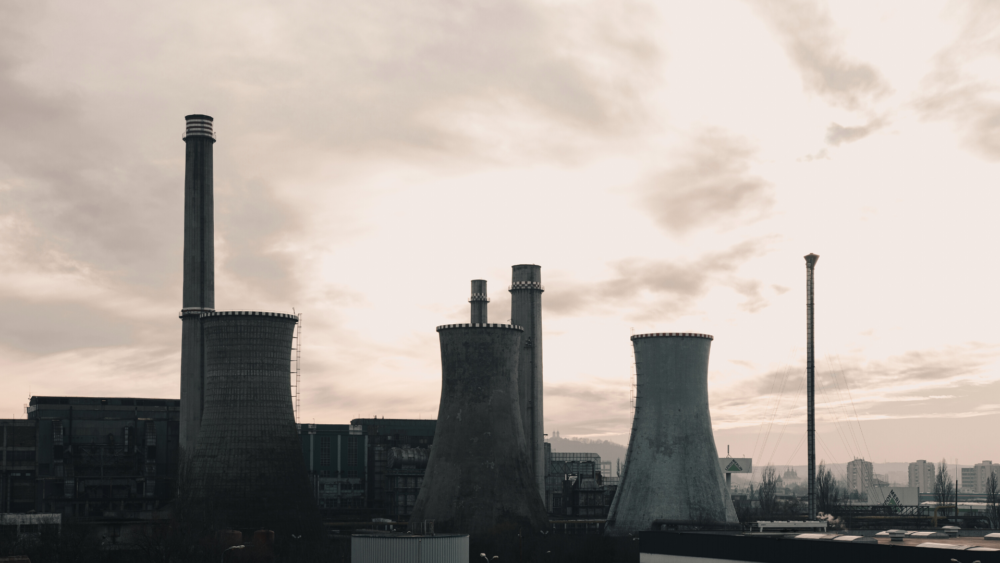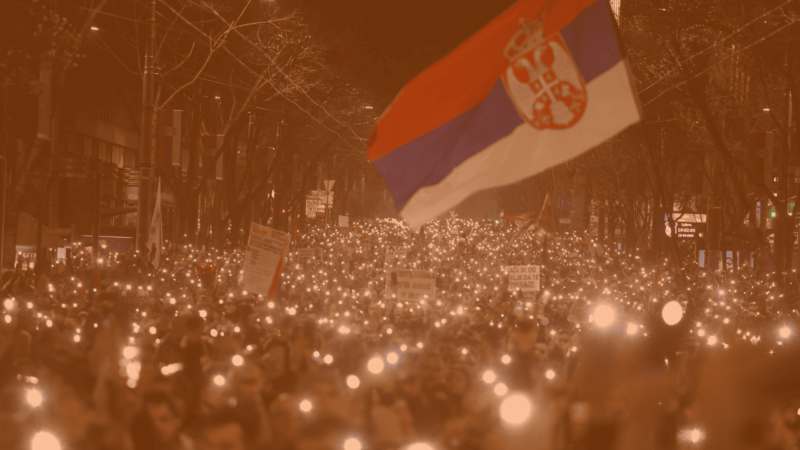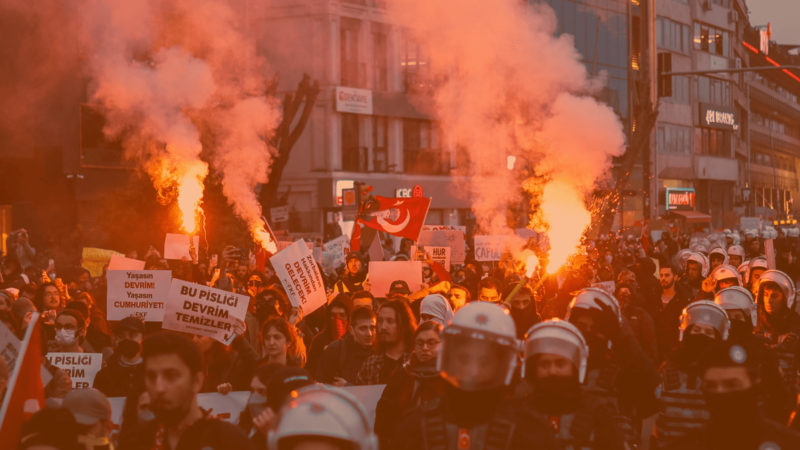To be clear, nuclear power is not green. And it cannot be. It is not a good end goal, nor a transitioning solution.
There are a number of reasons why we believe progressives around Europe and the world today should organise against nuclear power as a fake and dangerous saviour.
First, the risks are enormous. At any time, especially with the rising levels of climate uncertainties, let alone human errors, damage in nuclear power plants can result in catastrophes such as one in Fukushima or Chernobyl. Nuclear reactors are, in the best case, designed to withstand a single earthquake measuring a maximum of 7.0 magnitude on the Richter scale. But if faced with several minor ones — or damage to surrounding infrastructure — the power plant will be destroyed. Due to man-made climate change, we can only expect rising sea levels, hurricanes, and other climate disasters. We cannot expect the Earth to stand still in these uncertain times.
Secondly, consumed fuel rods from nuclear plants are radioactive waste. And they are often stored at the same site as the reactor. This radioactive waste has to be maintained for at least 200,000 years (!) and the more nuclear waste there is, the higher the chance that leaks will occur. This can damage human, non-human animals and the planet itself.

Can we really trust our governments with this issue? What are the chances that the previously mentioned case of Fukushima, where the authorities decided to dump more than a million ton of radioactive waste water in the Pacific Ocean, won’t be replicated all over the world? And how can future generations — in let’s say 1,000 or 10,000 years — be aware of what dangerous materials we have buried deep in the ground of Planet Earth? Nuclear waste represents a clear case of outsourcing nuclear catastrophe into the future, while the governments and corporations don’t bear any consequences.
Thirdly, new nuclear power costs about 4 times more than wind and solar power per kWh and it’s not renewable at all. In fact, it produces 13 times the emissions per unit of electricity generated compared to windmills. Furthermore, we simply do not have time to make a just transition to carbon-free electricity if we are going to pursue it through nuclear energy.
One nuclear power station takes between 10 to 19 years to build, with most, if not all, falling behind schedule and astronomically over budget. If we were to double the amount of energy from nuclear power stations, the direct cost of construction would be in the region of — US$ 4’410’000’000’000 — or 4.41 × 1012 for short. All of this — likely to be public funds — will be channeled to a select list of global corporations to take the share of global nuclear energy production from 10% to 20%.
We need to keep in mind that — ultimately — fuel for nuclear power requires mining. However, uranium mining is dangerous. And, unlike renewable energy sources (e.g. silver for windmills) it needs continuous mining. Additionally, uranium mining comes with a whole range of mining related diseases, not to mention that it represents a form of neocolonialism (extracting valuable minerals and destroying the planet and local communities).
We should bear in mind that ‘civilian’ nuclear energy programmes supply the necessary plutonium and tritium for nuclear weapons and have historically been used to further military goals. The ‘civilian’ nuclear industry is in fact celebrated as the backbone of ‘national security’ in the United States by providing a steady-stream of ‘talent’ and engineering marvels to maintain US hegemony on our planet. In the United Kingdom, researchers at Sussex University uncovered “hidden dependencies of the submarine industry on civil nuclear programmes” and highlighted how the general public is subsidising “military nuclear infrastructure”.
Any desire to close humanity’s chapter on nuclear weapons will necessitate the end of its primary fuel. Expansion of nuclear power stations therefore run contrary to this vision. We cannot simultaneously call for an end to nuclear weapons but support expansion of nuclear energy on our shared planetary home.
Last but not least, nuclear energy cannot be created as part of the commons, due to the high need for expertise, security and complicated ways to obtain licenses. This results in the money being poured right into the hands of oligarchs that cannot be trusted.
Money plus all the surveillance that would be needed in order to keep this under control, in the hands of just a few people who are able to build nuclear power stations. Full surveillance based oligarchy, where could things go wrong?
Do you want to be informed of DiEM25's actions? Sign up here















